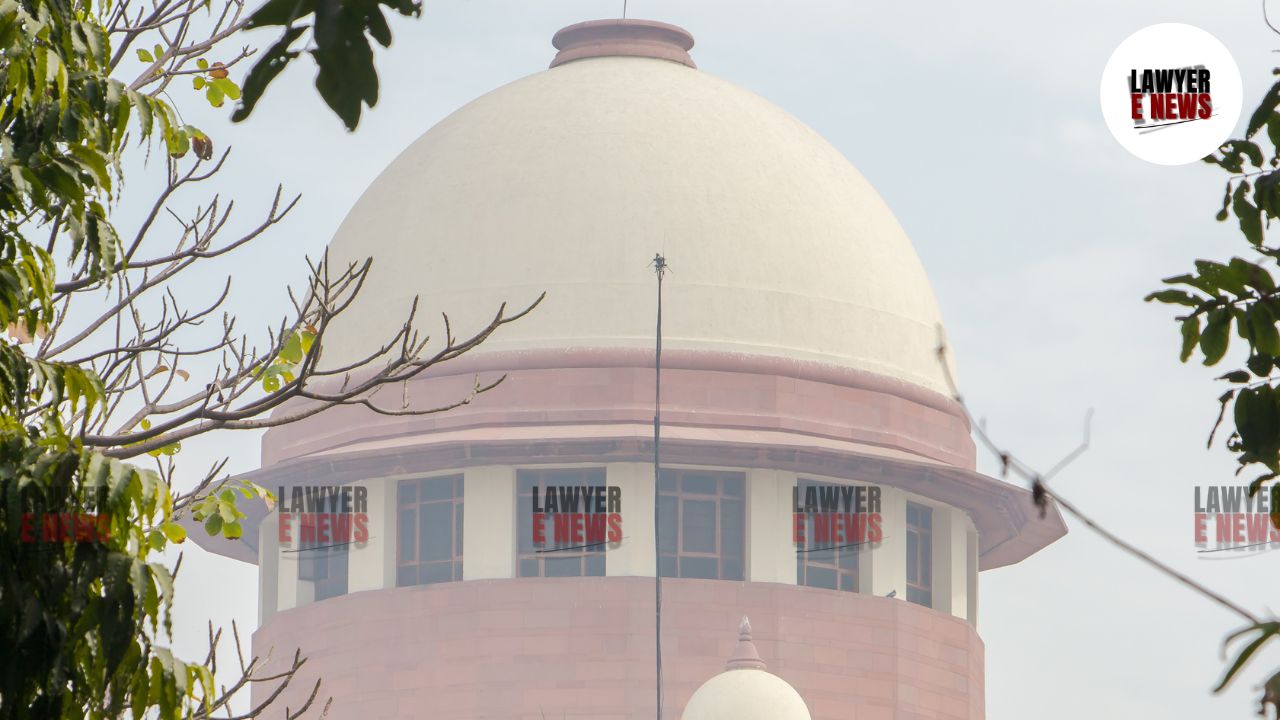-
by Admin
15 February 2026 5:35 AM



Supreme Court of India, in the case of P. Srinivasan v. Peta Venkamma alias Peta Venkatamma & Ors., addressed significant procedural lapses in the investigation of FIR No. 244/2019 regarding an alleged property fraud. The Court rejected the petitioner’s request to transfer the criminal case to a New Delhi court but ordered a fresh investigation by a new Investigating Officer, criticizing the local police for procedural failures.
The petitioner, P. Srinivasan, had filed C.F. No. 2842/2018 under Section 200 read with Section 190 of the Criminal Procedure Code (Cr.P.C.), accusing 19 persons of fraudulently claiming ownership over a disputed property in Nellore, Andhra Pradesh. This led to FIR No. 244/2019 being registered under various sections of the Indian Penal Code (IPC), including forgery and cheating. However, Srinivasan alleged that the local police had not conducted a proper investigation, prompting him to file multiple applications and protest petitions.
The case involved long-standing property disputes between closely related parties. Although FIRs and complaints had been lodged, the police repeatedly failed to file proper status reports or charge sheets. The petitioner, having shifted to Delhi, sought to transfer the case to the District and Sessions Judge at Saket Court, New Delhi, citing convenience and lack of faith in the local police.
Non-filing of the Final Report: The petitioner argued that no proper investigation had been conducted, and the final report was either not filed or not recorded correctly by the Nellore police.
Contradictory Stands by Police: There was a significant discrepancy between the statements made by the police before the Andhra Pradesh High Court and the Nellore Judicial Magistrate regarding the submission of the final report.
Transfer of Proceedings: The petitioner’s request for the case to be transferred to New Delhi was premised on his recent relocation and concerns about local police inefficiency.
The Court noted severe procedural lapses, particularly in the police's handling of the final report. Despite claims that a closure report had been filed on December 8, 2021, the Nellore Magistrate confirmed that no such report had been received. Further, contradictory explanations were presented by the Station House Officer (SHO) before different judicial forums.
"The Local Police Has Failed to Perform Its Duties" - SC Criticizes the Conduct of the Investigation
Details of the Judgment: The Supreme Court, led by Justices Surya Kant, Dipankar Datta, and Ujjal Bhuyan, made the following key rulings:
Investigation by a New Officer: The Court ordered that the investigation be handed over to a new Investigating Officer, replacing the current officer responsible for the investigation. The Court observed that the local police had "failed to perform its duties" as per the procedures outlined in the Cr.P.C.
Three-Month Deadline: The newly appointed Investigating Officer was directed to complete the investigation and file a report within three months.
Nullification of Previous Report: The Court declared the alleged final report dated December 8, 2021, as "non-est" (legally void), meaning it has no legal effect on the fresh investigation.
Dismissal of Transfer Petition: The petitioner’s request to transfer the case to New Delhi was denied, with the Court stating that given the fresh investigation, there was no need for a transfer at this stage.
The Supreme Court’s decision highlights the importance of due process in criminal investigations, especially in cases involving alleged police negligence or inaction. By ordering a fresh investigation and nullifying the prior report, the Court reinforced the need for transparency and diligence in handling criminal cases. The petitioner's request for transfer was rejected, but the Court ensured that a fair investigation would be conducted under the supervision of a new officer.
Date of Decision: September 11, 2024
P. Srinivasan v. Peta Venkamma alias Peta Venkatamma & Ors.
